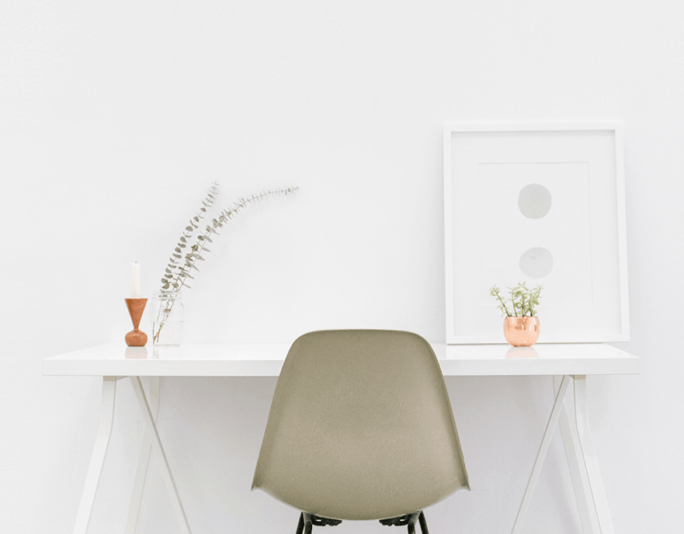Feng shui is more than just interior decorating—but take the Western versions with a grain of salt.
I am a bundle of weird superstitions. One of them is that it's bad to sleep with your feet facing the door. I have in my head that this is because they used to carry corpses out the door feet-first, so you know, don't be a corpse. The problem here is that unless you sleep in your doorway, your feet are always kind of facing the door. I often lie there at night, musing about the pathway from my feet to the door, and wondering how much bad luck I'm incurring as I snooze.
Apparently, I found out on Stuff You Should Know, this doesn't go for offices. Facing the door is all for the good, since it's where the energy comes in. What if you want to work in your bed, is what I want to know. So I listened to the whole podcast, and found out a bunch of things about feng shui.
It basically translates as "wind and water," is in a nutshell is "the concept of allowing chi [energy] to flow in the best possible way." It comes from the Taoist tradition in China, as goes as far back as the 6th century B.C. There are similar traditions around the world, like vastu shastra or "building science" in ancient India, or structures like Angkor Wat and Stonehenge, that align with the stars and the solstices. The idea is that we are spiritually connected to the spaces we inhabit, and aligning these in a certain way channels energy right.
This energy though "is not self-correcting," say the podcast guys. It can be blocked, or knocked off balance. Feng shui is the art of "arranging your abode" to prevent this, "taking into account the five elements—earth, water, fire, air, and space—and how they affect your pad, or your city, like you said, or community, or temple." Funnily enough, it's not that big in China now—only about a third of the population have much time for it. It's a different story in the West, which we'll get to.
The five elements interact productively or destructively—"sort of a game of rock, paper, scissors"—then yin and yang come in. They're opposite types of chi, more or less, and white, or heat, should always be on top. White is also masculine, so I don't know how I feel about that in 2016, but you know, I'm picking my battles. To do feng shu in your house, you make a "bagua map". Google it, and note the interesting fact that OG feng shui demands you move your building around the map, while western feng shui says you can just move the map. Classic.
There are three main types of feng shui: the Form School focuses on the shape and formations of the surrounding environment; Compass Schools are about the orientation of the building itself; and Black Hat School: more commonly known as Western feng shui, "because it’s the one that most easily translates to an HGTV show." This is about arranging rooms for good fortune, or as host Josh Clark puts it, "basically interior design." It came to fame (and America) in '70s with Thomas Lin Yun, who, I found out from Google, had the incredible title, "His Holiness Grandmaster Professor." If traditional feng shui is based on magnetism and astrology, Western feng shui is based on psychology—it's an association game.
Like with any spiritual trend, the entrepreneurs quickly rolled in and there's a thriving feng shui industry today. A red flag for duds though, is if someone insists on you adding Chinese decor. Feng shui might be a Chinese art but in principle, it transcends cultural boundaries. Everyone agrees on one thing though: no fluorescent lights, ever. I'm still musing on the idea of a home/bed office, so that suits me fine.
instant happy in your
mailbox every day.






